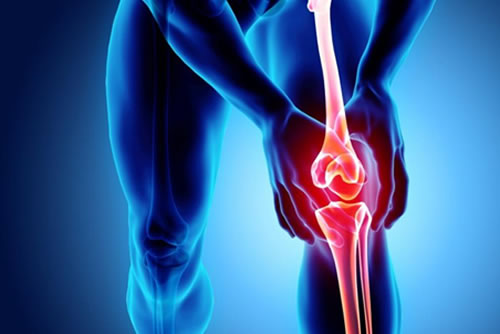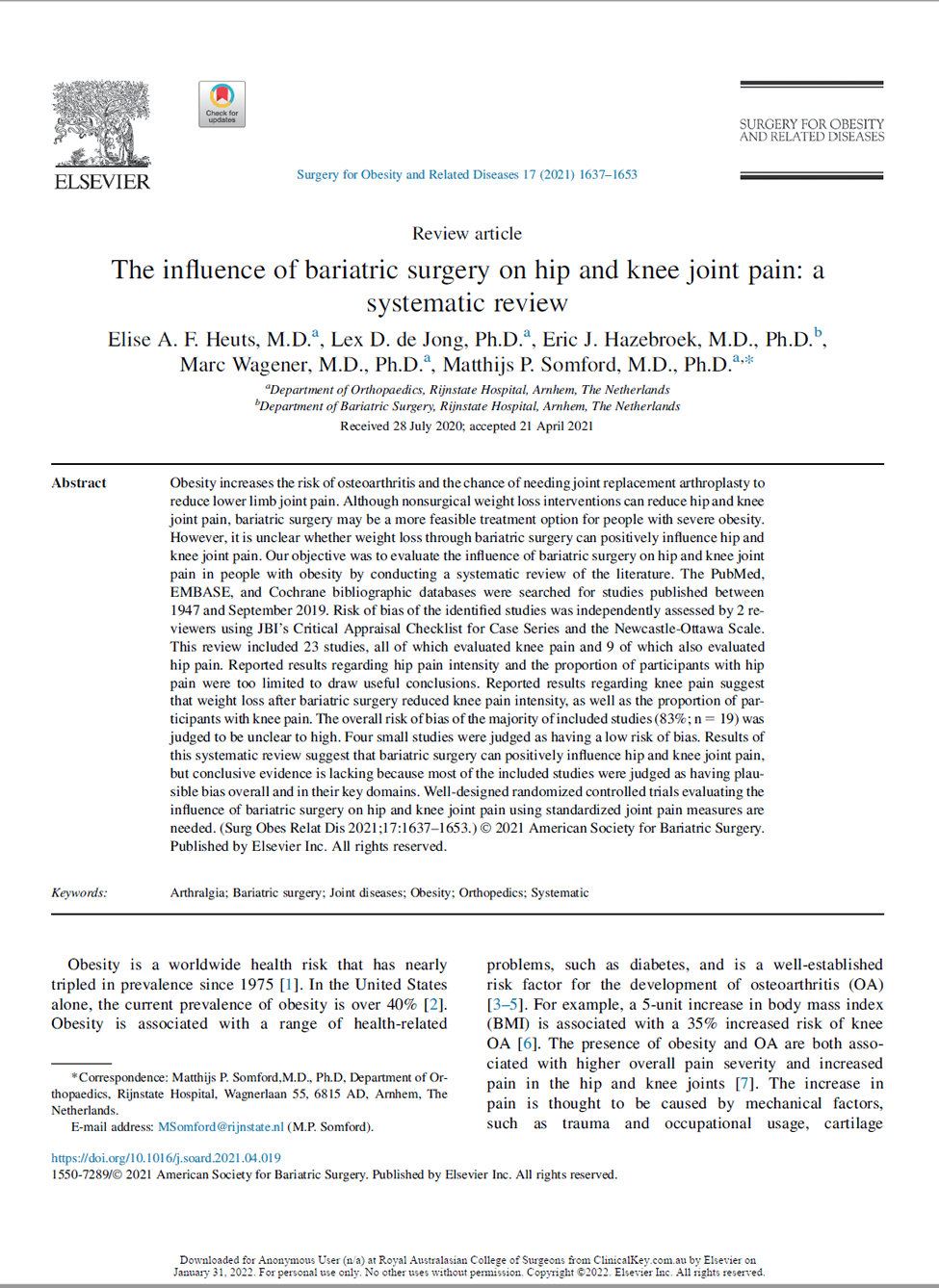
Weight loss confers many benefits which can broadly be divided into medical improvements and psychological or social improvements.
Straddling both these categories is the impact on physical functioning, body pains and discomfort and mobility. For older patients these issues impact substantially on future independence.
Joint disease, particularly in the form of hip and knee arthritis, is a common complaint of those suffering obesity and it can manifest as early as 30s and 40s. Many patients will be looking at potential joint replacement surgery due to progressive arthritis.
As little as a 5 unit increase in BMI is associated with a 35% increase in knee osteoarthritis.(1)
Patients suffering obesity have a higher risk of problems and complications after joint replacement surgrery such as poor wound healing and joint stiffness.
A comprehensive study from the Netherlands published in 2021 collated results from 23 relevant studies on joint pain changes after bariatric surgery.

The study concluded that knee pain and hip pain for most individuals is substantially reduced after undergoing weight loss surgery.
Although this has always been assumed and seen on an ad hoc basis with weight loss, it is heartening to see that comprehensive research backs up this conclusion.
Benefits of bariatric surgery may therefore include:
- Reducing pain from lower limb joints
- Increasing mobility & independence
- Forestalling joint replacement surgery
- Improving outcomes after joint replacement surgery
For obese patients suffering hip and knee arthritis consideration should be given for weight loss surgery prior to looking at other interventions including joint replacement.
References
1. Heuts EAF, de Jong LD, Hazebroek EJ, Wagener M, Somford MP. The influence of bariatric surgery on hip and knee joint pain: a systematic review. Surg Obes Relat Dis. 2021;17(9):1637-53.